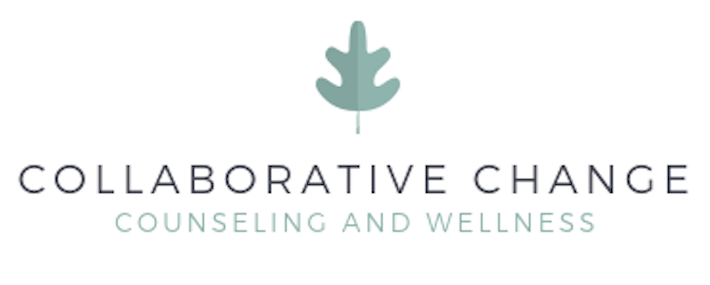Applying for jobs is a stressful, vulnerable process for anyone. For someone with mental illness, the task can seem impossible. Furthermore, unemployment can be linked with declining mental health. Individuals who are seeking jobs may begin to lose confidence the longer it takes to get interviews or secure employment. This can impact mood, self worth, and motivation, among other things. This is why it is important to consider what specific help someone may need who is applying for jobs while struggling with mental health. Here are some tips for applying for a job while struggling with mental health.
Preparing for Job Applications
Address Cognitive and Emotional Barriers to Applying to Jobs
Since applying to jobs will inevitably be difficult, one of the first things someone with mental health illness will wish to do is try to identify cognitive and emotional barriers to initiating and maintaining the job application process.
Cognitive Barriers
Cognitive barriers might include critical thoughts about oneself. For example, some people may have the thought “I am really bad at interviewing”, “No one will want to have me as an employee”, “I am too unqualified for that job”, or “I will never get a job”. These kinds of thought can interfere with feelings of hope and possibility and decrease motivation.
One way to address these thoughts, and hopefully increase motivation, is to identify and become more aware that they are occurring and then attempt to change or stop them. This type of approach to thoughts is common in a type of therapy called Cognitive Behavioral Therapy (CBT). You can improve your awareness of thought patterns that are more likely to arise when you start applying to jobs and then find alternate ways of thinking about the situation.
Emotional Barriers
Some emotions come directly from thoughts. For example, “I will never get a job” may lead to sadness and hopelessness, maybe even fear and anxiety. In these situations addressing the thought itself, as described above, may help shift and related emotions too. There are time where emotions may not seem as clearly connected to a specific thought. In these cases we want to consider how to address emotional barriers when they are outside of thoughts.
One way to address emotional vulnerability directly is through biological rhythms that impact our emotions and mood. Eating, sleep, exercise/activity, physical illness, and substances all impact our biological rhythms, and thus our mood. Focusing on increased consistency in all of these areas may help manage barriers that are linked to how we are feeling in the moment. The more regularly we eat, sleep, drink, and move our bodies the more emotional resilience can be found.
One therapeutic approach that identifies specific ways to reduce emotional vulnerability is Dialectical Behavior Therapy (DBT). In this approach, one area of focus is helping clients learn to be more aware of their behavior patterns that lead to disruption in emotions. Specific attention is given to helping people prioritize taking care of physical illness, improving eating and nutrition habits, avoiding substances, stabilizing sleep, and increasing exercise. DBT also focuses on taking small steps to increase positive experiences.
Address Knowledge Barriers to Applying to Jobs
Many people, especially young adults, have very little experience applying to jobs, especially while struggling with mental health. Thus, it becomes important to identify knowledge deficits in order to increase confidence. A useful tool for those with mental illness who are also attempting to job search is this job and career guide for people with mental illness. It covers finding employment, deciding a career path, resume writing and cover letter tips, and interview techniques. These skills will be applicable for anyone and the guide also specifies tips for finding a job specifically for people with depression, anxiety, ADHD, and bipolar disorder.
A therapist can also help you consider what areas of knowledge and skill you may be able to strengthen so that you can feel more confident in your ability to be successful in your job search. You may even be able to role play interviews or phone calls to reduce stress and uncertainty around those interactions.
Beginning Job Applications
Take one step at a time
After you have worked to get yourself ready for the job application process you are ready to get started. Some people will be excited to begin this process and other people may dread it. Either way, it is important to break the job application process down into small steps and focus on taking only one step at a time.
If you are able to focus on one step at a time, it can help you stay on task and decrease overwhelm. Anyone would want to quit if we think about every step we need to take to accomplish a goal. Fortunately we don’t have to think about every step and actually it is better if we do not. All we need to think about is how to get through the first step. For example, you may first want to create a list of the types of jobs you might want. From there, you can more easily discard any job opportunities that are not right for you.
Have self compassion
In the job application process it is important to be very compassionate with yourself. None of this is easy. Be watchful for those critical thoughts you identified in your preparation and be ready with a counter thought. For example, if your mind is telling you that your resume looks childish, you can remind yourself that no resume is perfect and you are doing the best you can.
Beyond catching critical thoughts, you can also actively plan in compassionate and kind statements and activities for yourself. You might put post its on the walls with affirming statements. You might plan nice or soothing activities after a stressful day of applications. Either way, the main idea is that you treat yourself with care and respect, just like you do other people.
Be ready for setbacks
It is inevitable that you will have setbacks. You will not always receive a call back from a company, a reply to your application, or an interview opportunity. You will want to actively prepare for these setbacks. Gather information from friends and peers about their experience applying to jobs so that you don’t feel so alone. Remind yourself that you are doing the best you can. The only way to get a job rejection is to apply in the first place. So, rejections are affirmations of your attempt to be active and try. You can prepare a plan for when you have difficulty summoning energy, get hard news, or feel hopeless.
Getting Support
Reach out to family and friends for support. They likely have had similar experiences and will want to help you. You may also find local resources at your library or other community organizations. Working with a therapist can also help you prepare for the application process, maintain compassion for yourself, and manage setbacks.
At Collaborative Change Counseling and Wellness we have therapists interested in working with you as you try to apply to jobs while struggling with mental health. Reach out today for a consultation on how one of them may be able to help you.


